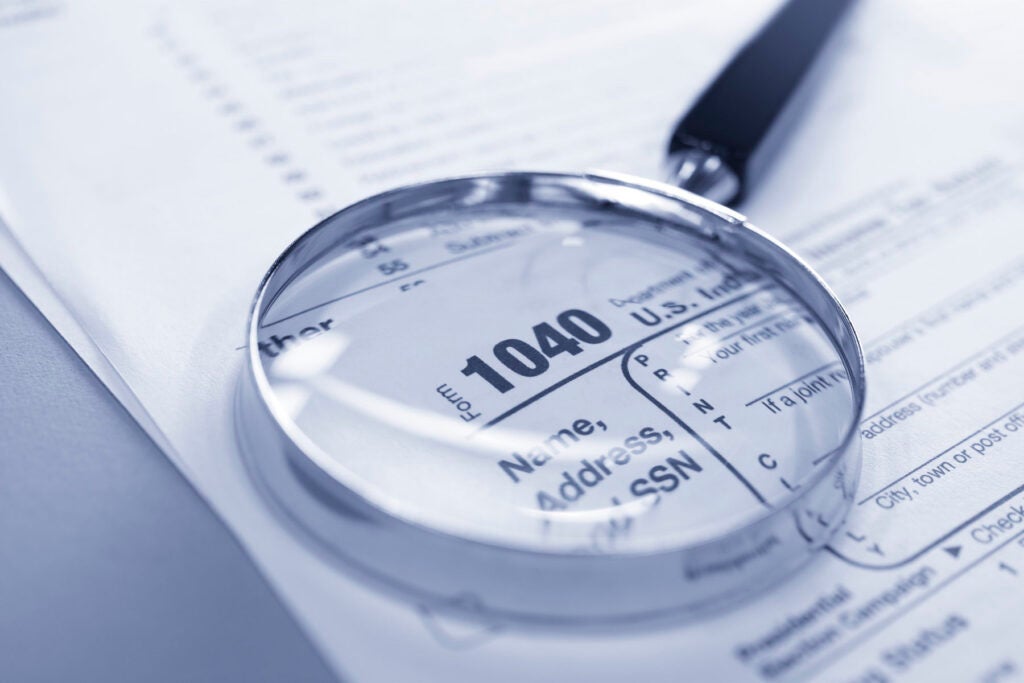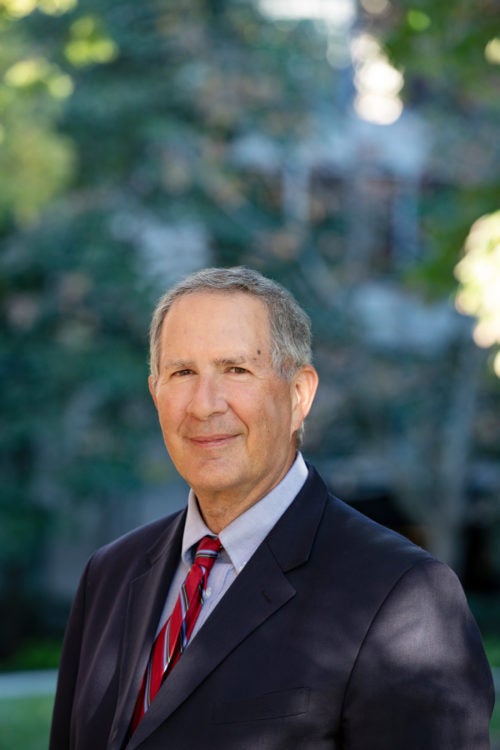Keith Fogg, clinical professor of law emeritus at Harvard Law School, says that IRS audits of two former FBI officials deserve an investigation, but he doubts tampering.
By Rachel Reed
Via Harvard Law Today
An investigation by the New York Times in early July revealed that James B. Comey, the FBI director fired by Donald Trump in 2017, and Andrew B. McCabe, who stepped in as acting director after Comey’s dismissal and was also later fired, had both been subject to a rare kind of audit by the Internal Revenue Service during the former president’s time in office. The report raised questions about how Comey and McCabe, who had come under fire from President Trump over the Russia investigation and accusations of disloyalty, had both been randomly selected for scrutiny.
Keith Fogg, clinical professor of law emeritus at Harvard Law School, who also previously served with the chief of counsel at the IRS, says that the chances are slim that such a selection could occur. “These audits are rare and intrusive,” he says, pointing to the figure provided by the Times, which wrote that just 5,000 taxpayers out of 153 million were subject to this audit in 2017. “Of course, the fact that the odds were long for both of them to have been selected does not make it impossible.”
Fogg, who also launched and led Harvard Law’s Federal Tax Clinic until his retirement last month, added that while meddling with the audit selection process was not out of the question, it seemed unlikely to him given the agency’s safeguards. That is because the IRS uses a closely guarded, proprietary computer formula to score returns for examination, selecting some that are higher risk for mistakes based on past returns.
Even given Fogg’s extensive experience at the IRS and in tax law, he says he has “no idea what that formula is, or even who within the IRS knows it,” meaning the number of people with the knowledge necessary to game the system is limited.
Still, these random IRS audits are especially invasive and time-intensive, Fogg emphasizes — which is why any accusations of targeting should be taken seriously. “Mr. Comey and Mr. McCabe have made a credible complaint that deserves to be investigated,” he says.
‘The commissioner would have shown him the door’
Once selected through this unhappy lottery, the agency goes line-by-line through a person’s — and their spouse’s, if they filed jointly — tax return to determine if they made errors, whether intentional and unintentional, says Fogg, offering a first-hand illustration of the process.
“The very first case I had when I arrived at Harvard was this type of audit,” he says. “The client was a low-income individual who worked part time as a school bus driver, and also had a small side business teaching. The auditor felt sheepish in doing the exam because he normally audited taxpayers with much higher income and more complicated returns. He did a nice job of explaining to the client that they had been randomly selected, and that was why he was looking at every line on the return, asking for support for things that would not normally need to be supported with documentation.”
The result, says Fogg, was a minor adjustment to his client’s return, which parallels the outcome of Comey and McCabe’s audits, as reported by the Times.
Despite the long odds that both men would be selected for such an audit, Fogg says the apolitical nature of the IRS — combined with the integrity of its leadership — make him skeptical that tampering occurred. “I feel confident that if President Trump had come to IRS Commissioner Charles Rettig seeking to have these two individuals audited, the commissioner would have shown him the door,” he says. “The IRS is institutionally very proud of its commissioners who stood up to presidents in the past.”
That includes President Richard Nixon, who was accused of trying to target political enemies through tax audits, leading Congress to pass a law in 1976 preventing commanders-in-chief from accessing information about Americans’ returns. Fogg adds that in addition to these statutory protections, the IRS also has broad internal safeguards in place to prevent interference by employees and others.
However, he concedes that it is not inconceivable that “someone with access to the system and a particular political bent could not have orchestrated this.”
The next step is an investigation by the Treasury Inspector General for Tax Administration, which will likely run computer checks on the system and interview those involved with the auditing process, says Fogg. If the agency finds that someone intervened, they could face steep penalties from the IRS and serious criminal charges.
Fogg says he is confident that any wrongdoing will be uncovered in the agency’s probe. In any case, he says, “I am certain that the IRS as an institution did not want to target Mr. Comey and Mr. McCabe with these audits,” adding, “which is not to say they were not targeted.”
Filed in: In the News
Tags: Federal Tax Clinic
Contact Office of Clinical and Pro Bono Programs
Website:
hls.harvard.edu/clinics
Email:
clinical@law.harvard.edu

